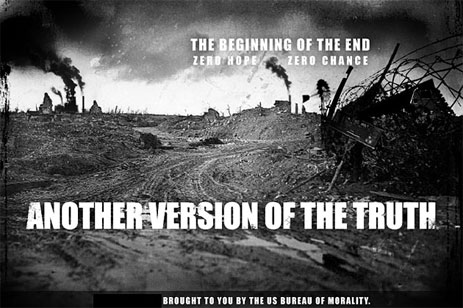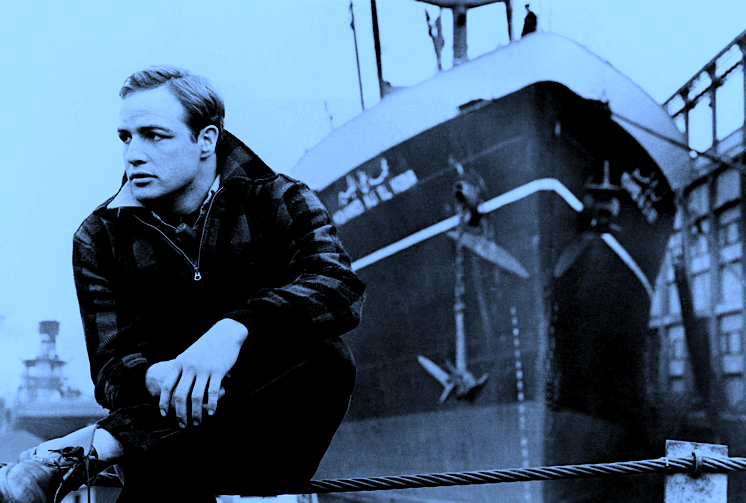
By Jason Apuzzo. • We begin today with sad news. It was extremely hot here in Los Angeles yesterday (around 113 degrees), and it appears that Sally Menke, Quentin Tarantino’s long-time editor, went out hiking in the heat and died. This is a terrible development, and we want to wish her family and collaborators our condolences. Menke was absolutely instrumental in the development of Tarantino’s revolutionary film style over the years, and she will be missed.
• Facebook has been doing overtime on damage control in preparation for the launch of The Social Network, reports the Wall Street Journal today. Good luck, guys. The Silicon Valley people are eventually going to learn that Hollywood always has the final say in these things. I wonder what William Randolph Hearst would be saying right about now. It’s hard to imagine, actually, because I keep thinking of Charles Foster Kane instead.

• I told everybody in my Wall Street 2 review that the film was not a political screed, nor an anti-Bush tirade, and most readers who’ve seen the film appear to agree with me. Well, guess what! The New York Times complains today that Wall Street 2 is too character-driven, and insufficiently given over to screeds and finger-pointing on the 2008 market collapse. Perfect! What a farce. A snarky essayist on the Times staff whines that the film wasn’t what he was hoping for, which was: “a movie that took on the financial crisis and eviscerated the folks responsible.” One can only imagine who those “folks” are. Somehow I doubt they include: Barney Frank, Christopher Dodd, Fannie or Freddie.
The writer of the article appears to be unaware that Stone was making a narrative drama, rather than a Michael Moore documentary. Stone actually had to explain to the writer: “I don’t know how you show a credit default swap on the screen … The idea that the entire system was dependent on a credit bubble that could pop overnight — that is really hard to convey on-screen … People won’t watch a business movie.”
The New York Times guy isn’t buying it, though:
The [financial] crisis, [Stone] insisted, was merely meant to be the backdrop for a story about a handful of “complex” people — an older, wiser Gordon Gekko among them — who just happened to be operating on Wall Street around September 2008 … Truth to tell, I wasn’t really buying what Mr. Stone was selling. The more he protested, the more he sounded like a man who hadn’t pulled off what he had set out to accomplish and was now making after-the-fact excuses. Not unlike Wall Street itself in the aftermath of the financial crisis, when you come to think of it.
So there you go, folks! The New York Times puts itself on record as resisting complex characterization in a drama, because it might get in the way of political score-settling. Perfect. No wonder the Times is going out of print.
• Gore Verbinski and Johnny Depp may team up again to bring back The Lone Ranger. I loved the original show when I watched it on rerun as a kid. Depp doesn’t at all read ‘Lone Ranger’ to me, though – he’s too metro. But basically I’ve given up arguing the point on that guy. He’s a megastar, he can act, and he’s obviously here to stay. [UPDATE: It wasn’t in the Deadline Hollywood article I linked to, but supposedly Depp is up to play Tonto – which makes more sense, frankly, as Depp is part Cherokee. Thanks to reader ‘Shane’ for the heads-up. Shane provides links for the Depp-Tonto story here and here.]
• The union fracas over The Hobbit continues, now with the studios getting involved. Wake me when that’s over. In related munchkin/fairy/dwarf news, you can read this detailed account of what to expect in the next Narnia film – assuming those films still float your boat.
• There’s an interesting piece today over at The LA Times’ Hero Complex blog by Iranian-American actor Farshad Farahat on his complex feelings about what Frank Miller’s doing with 300 and the forthcoming Xerxes. It’s an interesting read – check it out.

• On the Espionage Front, some poor soul doing a $10 million film is apparently interested in hiring Lindsay Lohan to play a “sexy CIA agent.” Whatever. He apparently isn’t aware that what Lohan would put him through would be worse than waterboarding. Also: Hawaii Five-O is off to a decent start, isn’t it? So far we’ve had oily Euro-terrorists, and now we can apparently look forward next week to the team fighting “a shark, hot women in hot cars and football stars.” Hey, this is my kinda show! Could they do that all at once? Then I would really be impressed.
• Back to the Future is coming back to theaters, on the occasion of its 25th anniversary. It was a great film – I loved it back in the day. Not so keen on the sequels. The Sound of Music is also getting a big 45th anniversary send-off for its Blu-ray release, featuring Oprah and sing-a-longs.
• On the Sci-Fi Front, Ridley Scott’s Alien prequel appears to be moving forward at Pinewood Studios over in the UK; there’s also an interesting rumor afloat about Tom Cruise possibly signing on to Guillermo del Toro’s At the Mountains of Madness. I’m not buying that rumor yet.
• On the Fashion front, The Frisky’s Wendy Atterberry is channeling her ‘inner Joan Holloway’ in a new fashion spread today. More women should definitely be channeling the inner and outer Joan Holloway, in my book; also, check out this great photo-retrospective of Carla Bruni’s fashion modeling career. Can we trade First Ladies with the French? Don’t they owe us one, or something?
• AND IN TODAY’S MOST IMPORTANT NEWS … Taken’s Maggie Grace (see above) has been cast in the forthcoming Twilight: Breaking Dawn, and it’s not difficult to imagine why.
And that’s what’s happening today in the wonderful world of Hollywood.
Posted on September 28th, 2010 at 2:40pm.


